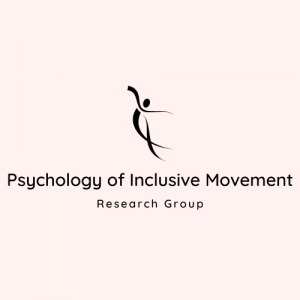This area includes research labs and scholars from the disciplines of exercise, health and sport psychology, skill acquisition and behavioral medicine. The research broadly examines the application of psychology to understanding and supporting healthy sport, physical activity and health behaviors, and incorporates a range of disciplinary perspectives and research designs, theoretical and methodological approaches.
Research Labs
 Exercise and Sport Psychology Laboratory
Exercise and Sport Psychology Laboratory
Professor: Peter Crocker (Emeritus)
The lab is overseen by Dr. Peter R.E. Crocker. Current lab research combines a variety of interrelated areas within the realms of sport, exercise and health psychology. Using quantitative and qualitative methods, researchers are examining important practical and theoretical questions in the following areas: stress, coping and emotion in sport and physical activity; perfectionism and the stress process; motivation for sport and physical activity participation; self-compassion processes in athletes and older adults, physical activity and well-being outcomes; passion in sport; body image and identity, and self-conscious emotions in sport and exercise.
This lab is no longer taking new students.
Fitness, Aging, & Stress (FAST) Lab
Professor: Eli Puterman
A quarter of Canadians report their lives to be quite or extremely stressful. Stress prevents people from engaging in physical activity and places them at increasing risk for chronic disease and early mortality via degradation of immune system function, alteration of protein synthesis through epigenetic pathways, and wearing down of biological and psychological stress pathways to disease. The vision for my research program is to understand how physical activity can mitigate these biological and psychological antecedents of disease to improve the health of Canadians and prevent disease development.
My research marries novel scientific discoveries and current state of the art technologies from adversity research, molecular biology, and exercise science to maximize our knowledge about physical activity as resiliency for optimal health. At present, our current understanding of habitual physical activity as resiliency to adversity is limited to observational findings. Intervention trials supplemented with laboratory-based stress manipulations and ambulatory psychological and biological assessments will broaden and deepen our understanding of the benefits of physical activity. The long-term goal is to develop an intervention strategy that combines digital health technologies and brief contact therapy to increase retention of participants and maintenance of habitual physical activity. By focusing on health promotion in high adversity communities, my research will help to reduce the burden on our health care system.
 Motor Skills Laboratory
Motor Skills Laboratory
Professor: Nicola J Hodges
In the Motor Skills Lab. we study practice. Specifically, how to optimize practice to learn motor skills more effecitvely and/ or more efficiently. We commonly conduct laboratory experiments, with new learners, to determine how manipulations to practice variables (such as instruction, feedback, order of practice) impact on learning and transfer. These lab. tasks range from relatively novel, yet easy to acquire skills (adapting to new visual-environments, learning 2-handed coordination actions, key-press sequencing) to more "true-to-life" skills (kicking, throwing, juggling). We also learn about practice by studying people who are already skilled. Motor experts provide a rich source of information about practice histories and current practice habits to give insights into what practice entails to develop expert-like performance.
Population and Physical Activity Lab
Professor: Guy Faulkner
The Pop-PA lab conducts research incorporating a range of disciplinary perspectives and research designs, theoretical and methodological approaches in addressing three critical questions:
- What factors cause or prevent physical (in)activity and sedentary behaviour?
- How does participation in physical activity influence mental health?
- How are effective population-level physical activity initiatives designed, delivered and disseminated for public health?
 Psychology of Exercise, Health, and Physical Activity Laboratory (PEHPA Lab)
Psychology of Exercise, Health, and Physical Activity Laboratory (PEHPA Lab)
Professor: Mark Beauchamp
The PEHPA Lab is overseen by Dr. Mark Beauchamp, who is an Associate Professor in the School of Kinesiology (formerly Human Kinetics) at The University of British Columbia and a Michael Smith Foundation for Health Research Scholar (Population Health). Drawing from diverse disciplines (that include behavioural medicine, organizational psychology, and education) our program is concerned with (a) understanding both barriers to, and facilitators of, physical activity behaviour across the age spectrum, and (b) developing conceptually-sound evidence-based interventions that are cost-effective and sustainable.
 Psychology of Inclusive Movement Research Group
Psychology of Inclusive Movement Research Group
Professor: Erica Bennett
The research group is overseen by Dr. Erica Bennett, who is an Assistant Professor in Health, Culture and Inclusion at the UBC School of Kinesiology. Our research group is interested in how cultural norms surrounding the body, physical activity, and sport, coupled with social identities including age, gender, sexual orientation, and (dis)ability shape how people cope with and adapt to stressor events throughout their life course. We conduct research on (a) aging, physical activity, and the body and (b) athlete stress, emotions, and coping, collaborating with community members and organizations to find ways in which to make physical activity and sport spaces more inclusive so that all people and bodies are supported to move in ways that allow them to thrive.
Sport and Performance Psychology Lab
Professor: Desmond McEwan
The mission of the Sport and Performance Psychology lab is to understand the factors that enable teams, and individuals within those teams, to thrive in pursuit of their goals. We are particularly interested in the psychology of team effectiveness—in short, how can teams reach their full potential? The majority of our research focuses on sport, but we also study teams in other high-performance domains such as healthcare, business, and military settings.